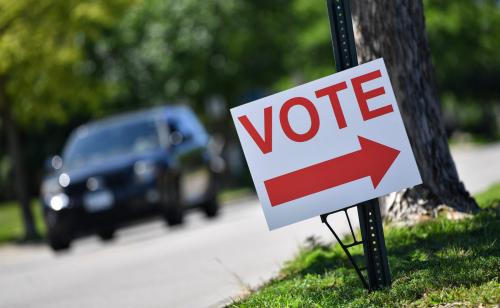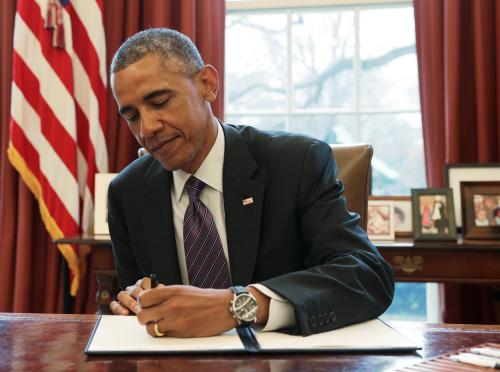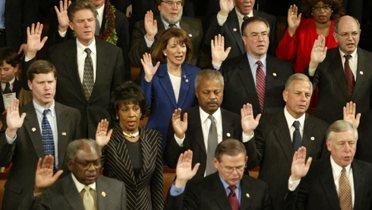The Republican Party platform for the 2020 campaign has been released—and it does not exist!
As published on the party’s official web site, the “Resolution Regarding the Republican Party Platform” states:
“RESOLVED, That the Republican National Convention will adjourn without adopting a new platform until the 2024 Republican National Convention.”
We all know that party platforms are traditionally about mom and apple pie—but at least they tell us the party is in favor of apple pie rather than cherry pie. I was on the drafting committee for the 2012 Democratic platform; the process is one of grappling with diverse interests and priorities. The diversity of those issues and interests reflect the challenges of governing.
The Republican resolution cites COVID-19 as a reason for cutting back on platform development. Yes, “strict restrictions on gatherings and meetings” have changed the nature of the 2020 political conventions. Such restrictions, however, did not stop the development of the 2020 Democratic platform to address the issues of the day and let Americans know what the party stood for.
There will be no grappling with the issues raised by our current national crisis by the Republican Party, however. There will be no forward-looking agenda to define what the party stands for.
But there is really no need for platforms anyway, the resolution suggests: “All platforms are snapshots of the historical contexts in which they are born, and parties abide by their policy priorities, rather than their political rhetoric.”
In an apparent attempt to address those “policy priorities” there is appended to the online version of the Republican non-platform a copy of the 2016 Republican platform. Of course, in 2016 the “historical contexts” for those policies bear little resemblance to the hydra-headed national crisis of 2020.
So, what are the “policy priorities” for the Republican Party in 2020?
It would appear from the resolution that in the context of a pandemic, recession, social inequity, and climate crisis the party’s policy is simply:
“RESOLVED, That the Republican Party has and will continue to enthusiastically support the President’s America-first agenda.”
It is hard to read this “platform” as anything other than “we stand for whatever Donald Trump wants.” And we know how Donald Trump interprets such a blank check. At an April 13, 2020 press conference discussing COVID-19 he told us: “When somebody is the president of the United States, the authority is total and that’s the way it’s got to be…It’s total.”
The Republican resolution is correct that platforms are the product of “historical contexts.” In the absence of a statement as to what the Republican Party stands for, the historical context that comes to mind is provided by the French king Louis XIV, the “Sun King,” and the divine right of kings. “L’etat, c’est moi”—“I am the state”—Louis reportedly said in the 17th century.
Party platforms represent a difficult grappling with diverse ideas and constituencies, for sure. The absence of such grappling and a public enunciation of what the party stands for, thus, can only create a “what’s next” void.
If Donald Trump wins, does he have a mandate for anything (other than himself)? If the Republicans end up controlling one or both houses of Congress, do they have a policy agenda? And how is it possible to establish international leadership on policies if you have no domestic policy platform?
Rather than deal with these issues, rather than tell the American people and foreign governments what it stands for, it appears as though the Republican Party has codified that it is for whatever Donald Trump wants to do. As the Sun King might have said, “Le parti, c’est moi.”
The Brookings Institution is committed to quality, independence, and impact.
We are supported by a diverse array of funders. In line with our values and policies, each Brookings publication represents the sole views of its author(s).







Commentary
The 2020 Republican Party platform: “L’etat, c’est moi”
August 25, 2020